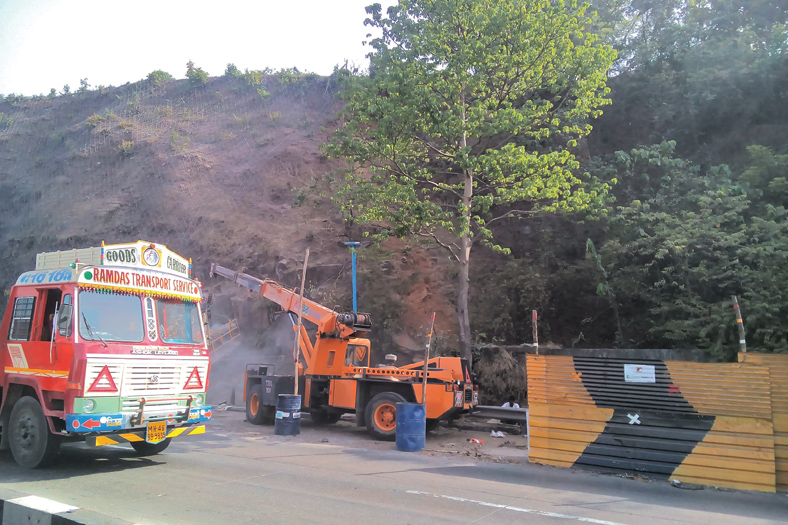Real estate: golden goose for NRIs
Real estate: golden goose for NRIs
As the rupee price is falling, NRI and foreign investors are perceiving Indian real estate sector as a feasible investment opportunity
Migration of people from rural to urban areas has led to increasing demand for housing and commercial sectors, and both the sectors play an important role in the overall development of infrastructure sector in India. According to study conducted by ICRA, real estate sector contributes 5-6 per cent to the country’s GDP, and it is expected to touch $180 billion by 2020.
Construction development sector including township, housing, and built-up infrastructure has attracted a cumulative foreign direct investment (FDI) worth $1.2 billion for April-January 2012-13, according to the Department of Industrial Policy and Promotion (DIPP). Among the various investment options in India, real estate is one of the sectors which have caught the attention of NRIs, especially with the rupee crashing against the dollar and homes in India became increasingly cheaper in dollar price.
NRI and foreign investorsWhile talking about how real estate sector is perceived by non-resident Indians (NRI) and foreign investors, Neeraj Gulati, Managing Director, Assotech Realty Pvt. Ltd., said, “NRI and foreign investors perceive Indian real estate sector as a feasible investment opportunity. The fall of the rupee is resulting into more investment by NRIs who are based in Gulf as the realty market offers relatively higher returns to them. Basically, NRIs are looking for asset creation and investment options in Indian real estate. Main criteria for their decision are based on good brand of reputed builder with a good track record, quality, and a feasible price bracket which is viable to enter into.”
According to Ashwini Kumar, Chief Operating Officer and Executive Director, Nitesh Estates Ltd., “A place in the homeland usually gives a sentimental support and sense of security, which is the other reason of investment in real estate by NRIs. There is perhaps not a single NRI who is not keen to buy real estate in India. Home ownership in this country is one of the most satisfying means available to them to stay connected to their motherland. Very often, such investments in their country of origin help them maintain their relationships back home while they make their fortunes abroad.”
Investment policies in real estateThe Reserve Bank of India (RBI) has granted permission to NRI to purchase property in India for residential or commercial purposes. The purchase consideration should be met either out of inward remittances in foreign exchange through normal banking channels or out of funds from non-resident external (NRE)/foreign currency non-resident (FCNR) accounts maintained with a bank in India. According to the latest reforms, the Government of India has decided to allow FDI up to 100 per cent under the automatic route in township, housing, built-up infrastructure, and construction development projects to increase investment, generate economic activity, and add to the available housing stock and built-up infrastructure.
Talking about the investment policies in real estate sector for NRI and foreign investors, Mr Gulati added, “Although NRIs may invest into Indian real estate sector directly, foreign investors have to invest through indirect routes.”
NRIs shouldn’t sell their real estate at least within 3 years of purchase of the real estate if they want to make money by investing in real estate- Ashwini Kumar, COO and Executive Director, Nitesh EstatesNRIs The proposals for FDI in India get their approval through two routes: RBI and FIPB. RBI gives approval within two weeks. It approves the FDI proposals that involve FDI up to 74 per cent in the nine categories that are included in list four, FDI up to 50 per cent in the three categories that are included in list two, and FDI up to 51 per cent in the 48 industries that are included in list three.
Mr Gulati continued, “FDI approval in India is also done by the FIPB, which processes cases of non- automatic approval. The time taken by FIPB for approving the proposals for FDI in India is between 4-6 weeks. The approach of FIPB is liberal; as a result it accepts most of the proposals and rejects very few. FDI approvals in India have grown significantly in recent years. Significant FDI approvals have taken place in telecom, real estate, banking and insurance sectors. Several other sectors have also benefited from FDI approvals in India. FDI approvals have played a major role in the economic growth of India in recent years.”
Whereas, Mr Kumar said NRIs shouldn’t sell their real estate at least within 3 years of purchase of the real estate if they want to make money by investing in real estate. If NRIs implemented this small activity, it’ll help them save a substantial amount of income tax on their long-term capital gain.Government policiesTalking about the steps taken by government to promote foreign investment into real estate sector, Mr Gulati said, “The government has simplified norms for Foreign Institutional Investors (FIIs) to invest in government and corporate bonds in its latest attempt to woo overseas investors to finance the widening current account deficit. The government has also allowed FDIs for several industries in the recent past. The government, SEBI and RBI have decided to remove sub-limits for FIIs within the overall cap for bonds.”
The government has simplified norms for Foreign Institutional Investors (FIIs) to invest in government and corporate bonds in its latest attempt to woo overseas investors to finance the widening current account deficit.
– Neeraj Gulati, MD, Assotech Realty
Rules and regulationsRBI along with FEMA has become lenient in rules and regulations for NRIs who are looking for an investment in real estate. Mr Ashwini Kumar, emphasised, “They are not only simplifying the rules but also providing the benefit of repatriation of the capital involved. The government is planning some investment growth activities through their investment promotional council to create an environment appropriate for non-residents to put money.”
RBI and FEMA regulations have categorically specified different kinds of investment that is permitted for NRIs in the real estate segment. NRIs can acquire any immovable property other than agricultural land, plantation property, and farm house in India. They can also acquire any immovable property as a gift from an Indian resident, citizen of India residing outside or individual of Indian origin. An NRI can even transfer agricultural property, plantation land or farm house as gift to Indian citizens.
12
Cookie Consent
We use cookies to personalize your experience. By continuing to visit this website you agree to our Terms & Conditions, Privacy Policy and Cookie Policy.









